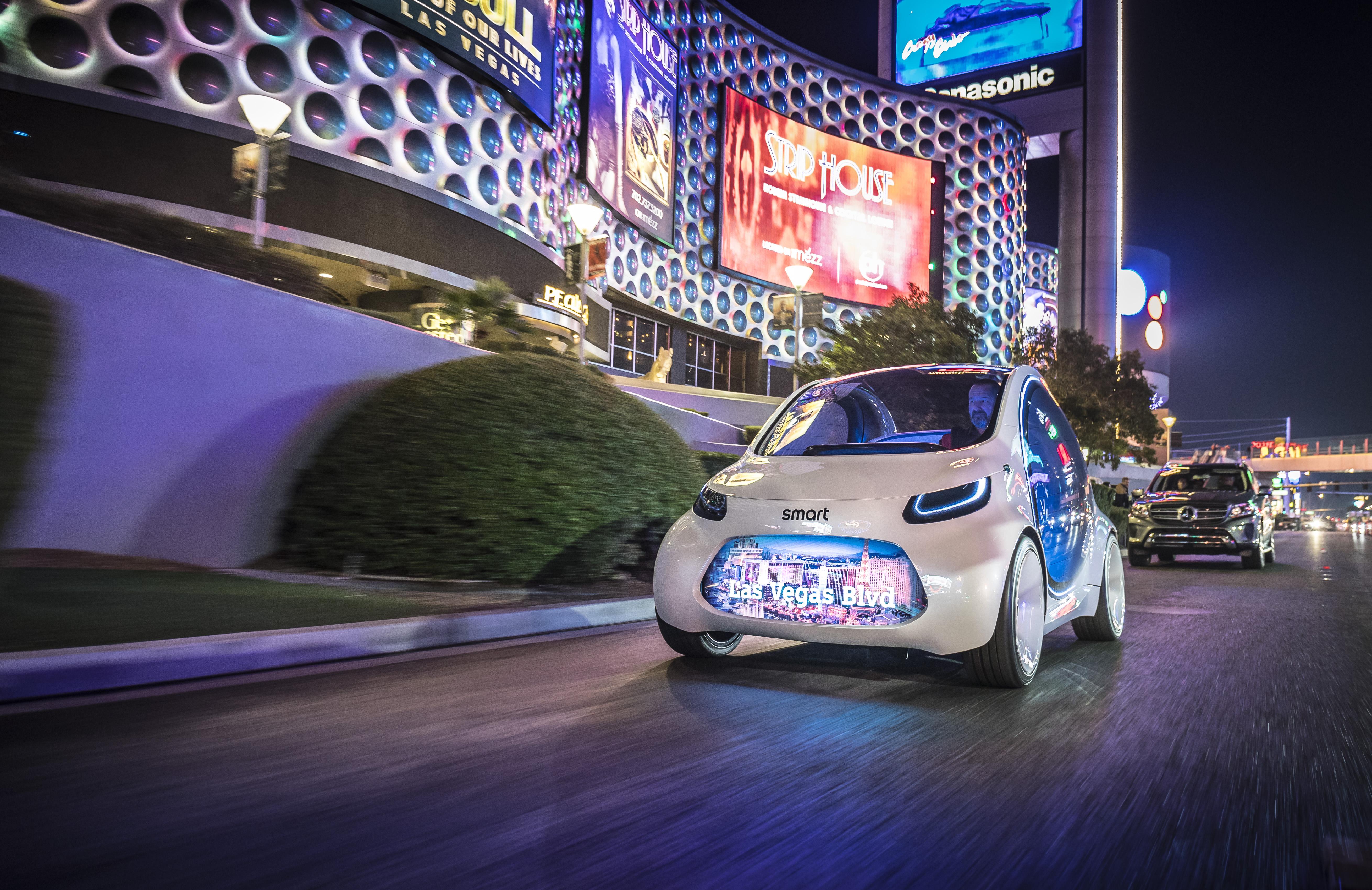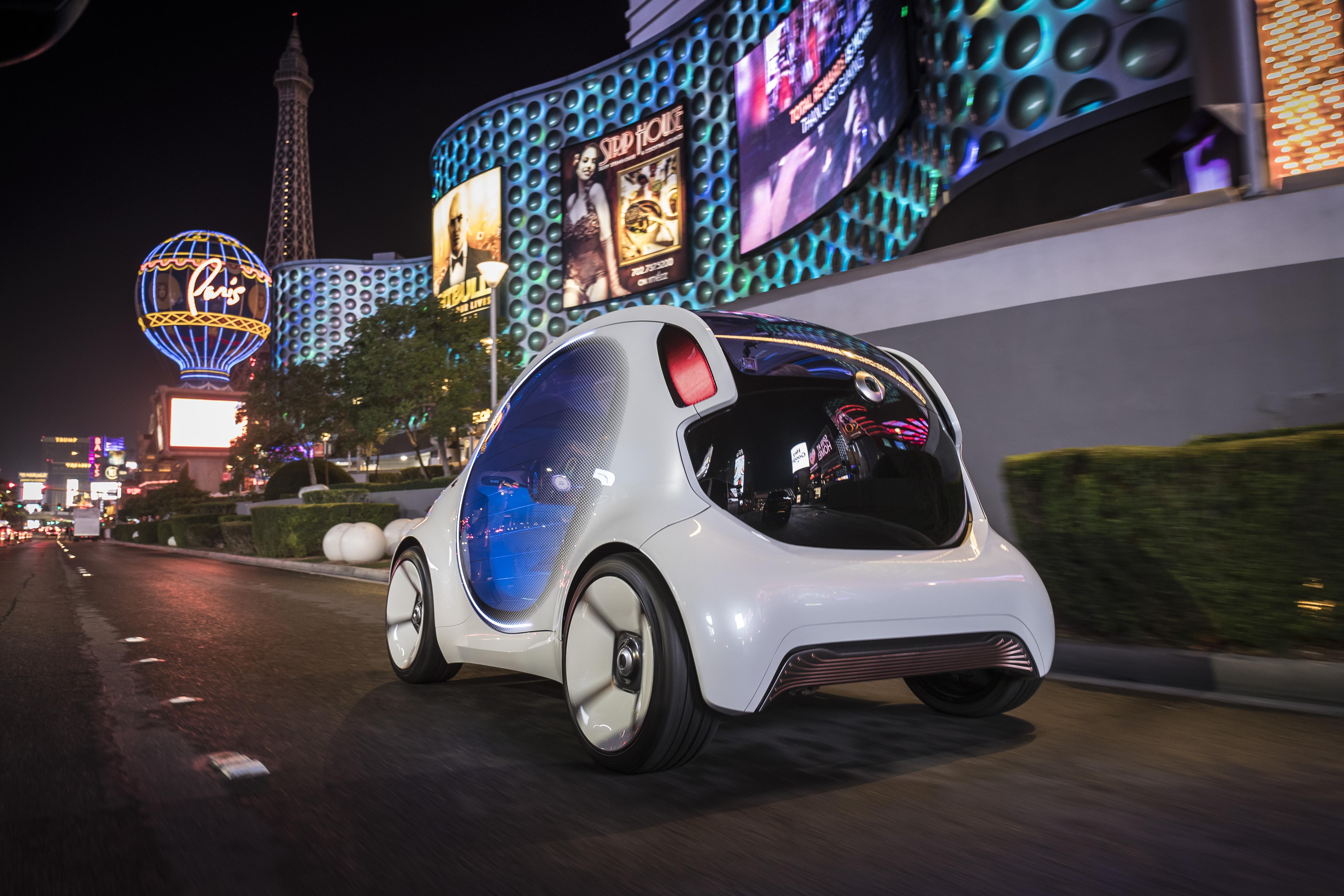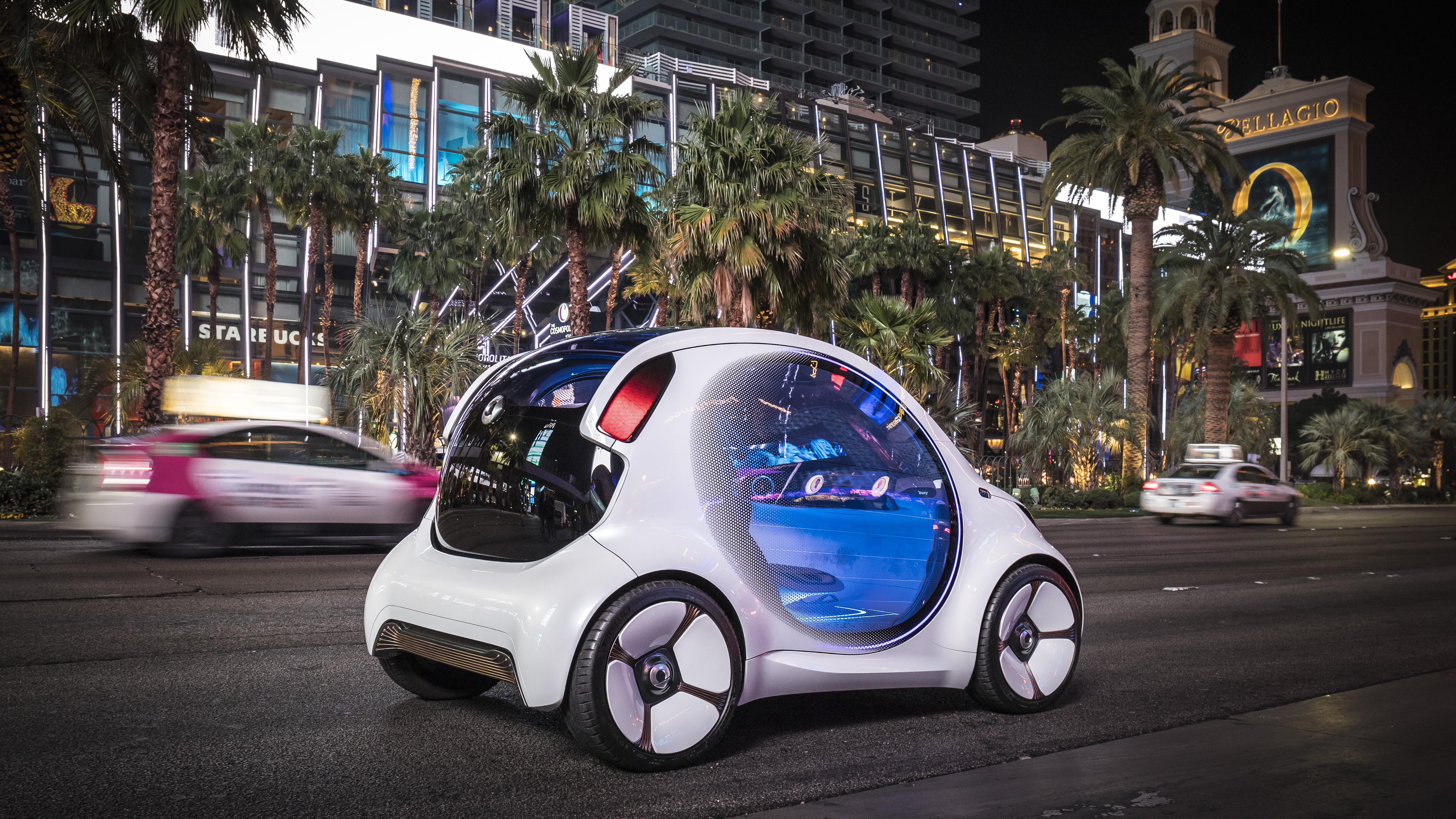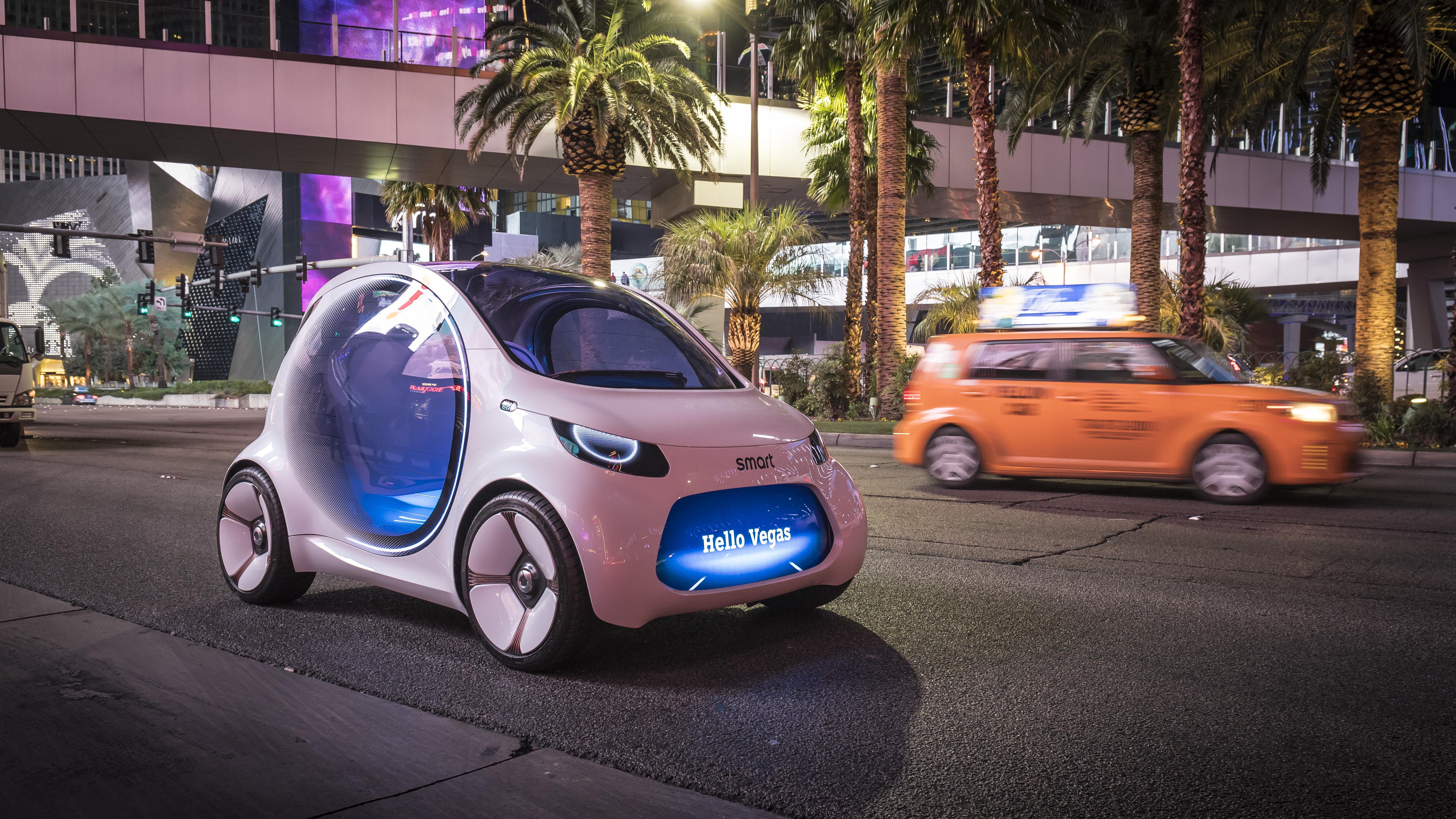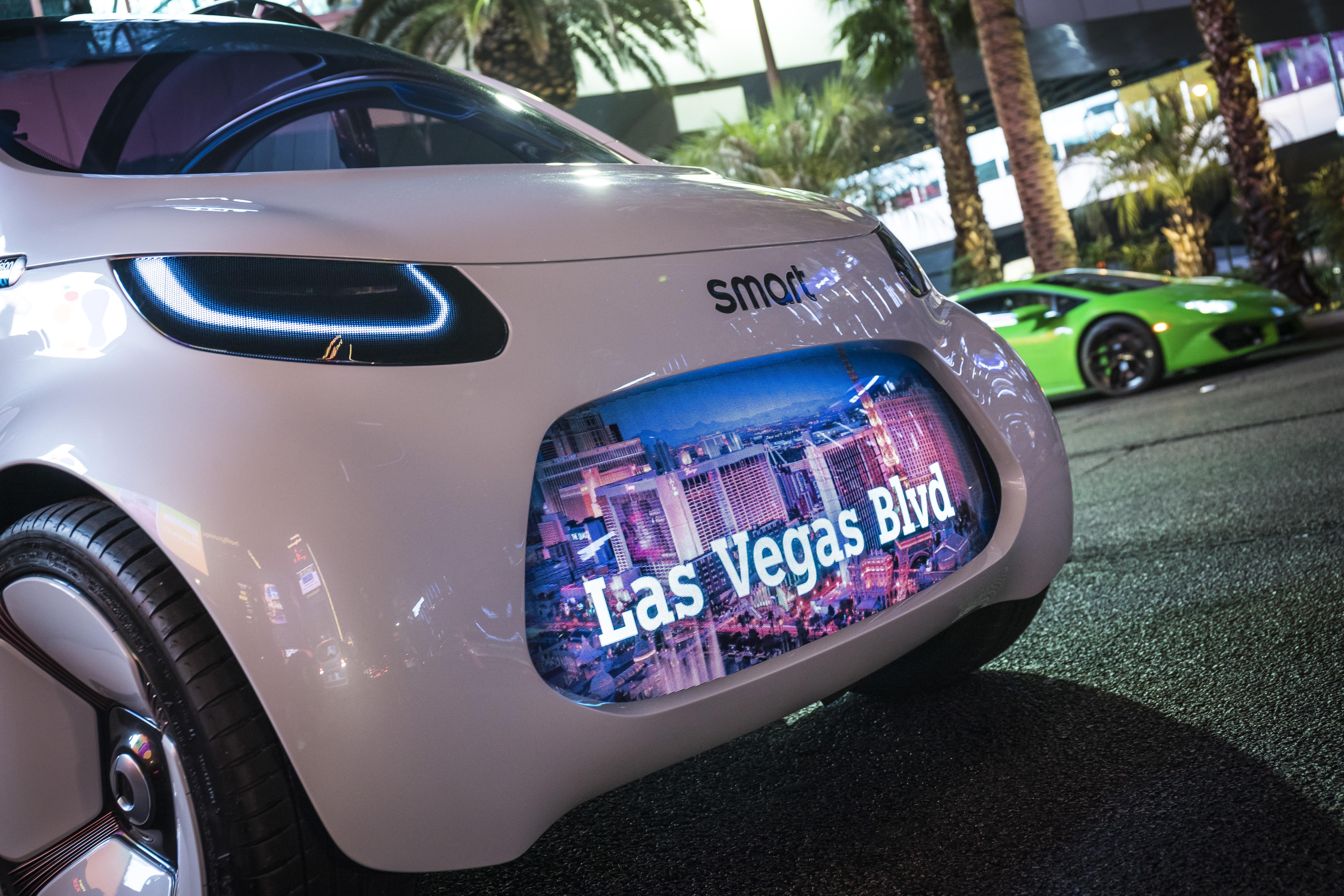Smart Vision EQ Fortwo First Ride & Interview With Dr. Annette Winkler On Quality Of Life
Cars are making the jump, some more of a slow hop, to technologies like connectivity, artificial intelligence and the like. These days, car makers talk as much about machine learning and neural networks as they do horsepower and torque. But while they are undoubtedly interesting from a technological perspective, in the grand scheme of things they should take a backseat to the most important element of all: the human element. At CES 2018, I got a chance to sit down with Dr. Annette Winkler, CEO of Smart Automobile, who describes what smart cars ultimately mean.
Dr. Winkler is in the best position to see it all. She is the first woman to head a Daimler division, a significant moment in the history of a still predominantly male-led industry. Under her term, Smart underwent a revival and even forged a new vision, embodied in the completely autonomous smart vision EQ fortwo concept electric vehicle unveiled in August last year.
SlashGear: Smart Vision EQ fortwo is kind of slated to be a shared car. Can I buy one when it comes out?Dr. Annette Winkler: Allow me first to explain the philosophy and motivation for that car. It's not a prototype. It's not a car to be realized. What we thought, after our decision to go fully electric, it's now the point in time where we should really think about what is next big step for smart. How could smart look like? But even more important, what does it mean? Smart always stood for transforming urban cars, collapsing traffic into city flow. What would it need to bring a better quality of life into the big cities?
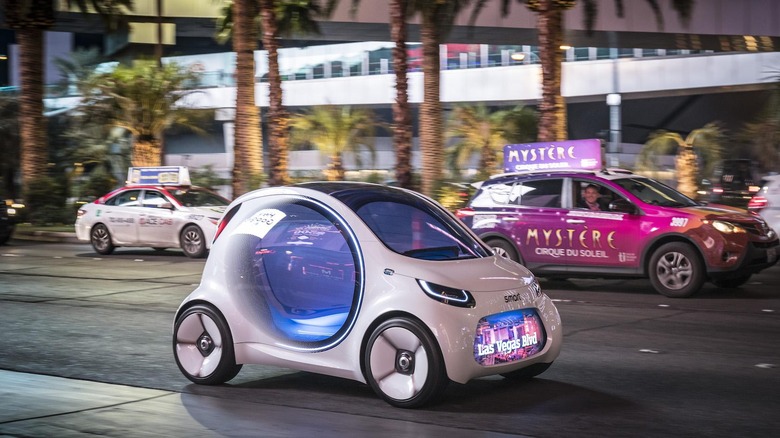
And then we came out with seven attributes. For me, the decisive one is "fully autonomous". It's focusing on caution with swarm intelligence. It knows where the customers are, it knows when it will have the time to recharge, which is also very important. It also has to be customizable. It should bring people together. So it will make you propose in the sharing who you will take as a co-passenger. Not only to save money but also to give back space and avoid unnecessary traffic. All these attributes together, with wireless charging, of course, we thought this is now the kind of vision for the next big step in the history of smart.
And it will not be that we are working 10 years and then 'WHOOP!" big show and then we will unveil a car. It will be more "this is our vision" and we will look every year what we can realize from that. And we are of course very much depending on Mercedes technology, technology in the market, the technology of communications company, etc.
SlashGear: I'm super excited. Look at it, and I'm thinking, that is such a pleasant car to look at. It hit me yesterday, as it (the door) was closing, it was like an airplane door. It comes down, it locks in, you get the sense it seals you in and you're in this private cocoon.
Dr. Annette Winkler: And that's another important aspect. Because many people are saying, with autonomous driving, space doesn't matter anymore because cars are always on the move. What nonsense. Space is precious in cities. And you need to meet the same level, the same feeling of safety, which is very important. There are already some elements today, but in the future, it will be even more important.
And car sharing is "car to share" but it's also "music to share". The car will know from your profiles her [co-passenger] favorite music and my favorite music and will make a match and will propose music both of us will like. It's sharing on a higher level.
SlashGear: And that's the point that people can really appreciate. Right now we do car share with Uber, Lyft, and it's kind of impersonal. Is it the case if I'm the first one in, that I can select or reject who I want to ride with me?
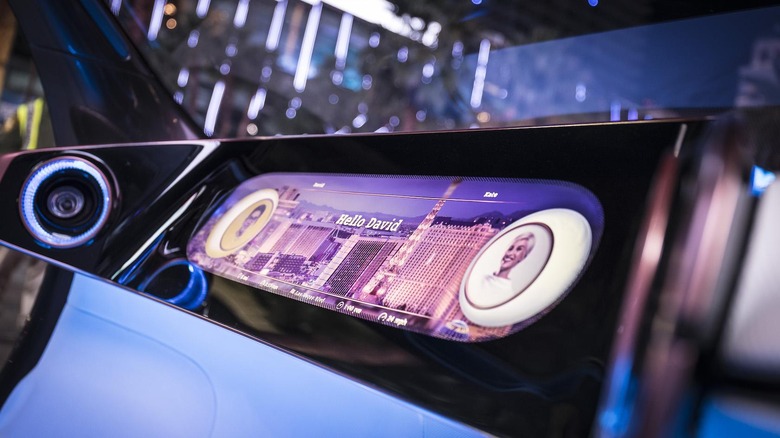
Dr. Annette Winkler: Of course you can reject. That's a very interesting aspect, by the way. We know from our car2Go business that when someone is using car sharing, in most cases it's because he or she wants to be alone. Because otherwise, they'd take private transport. Now I want to have that wonderful feeling in my car, I'm alone, I can do whatever I want, and forget that others can see me. That's why we also said you can make this optic windows in case I really want to be alone, and I can do so.SlashGear: Another observation about the doors, to your observation about how precious space is, it shows how forward-thinking Smart is by having the doors come up, not swinging out. In that future, cars will be very efficient, they'll be driving closer together. And when you come out, you don't have to worry about the doors swinging out and hitting other cars as well.Dr. Annette Winkler: It even prevents accidents. Imagine a cyclist. There's always this risk and there are many, many accidents. I think it's really also in terms of safety a nice feature, but I love very much the combination of wonderful design and very functional. Everything also has to have a function.SlashGear: You mentioned it could also be a personal chauffeur for your children, your parents. Parents would love to be able to track that EQ fortwo, watch it take children to school, and have a visual of some sort to the kids getting out and walking to school.
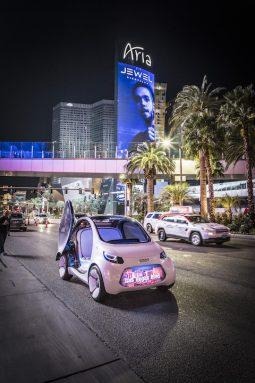
Dr. Annette Winkler: And time-saving on top. We are also speaking about feasible, profitable business models. Car sharing is still difficult to make a profitable business case. But first of all, this car will be en route all the time. Secondly, it will always be there where the customers are. Thirdly, we'll also have services. You can do self-service, but when you don't, the car could for the people. So it will be on the move forever, it will be used all the time. So for profitability, this will also be disruptive, in a positive sense.SlashGear: So if I'm in a party of four or five, can they be connected?Dr. Annette Winkler: Yes. Another example of what I thought of during the last weeks. Imagine today, you're leaving a train at the station. To go from the station to either car rental or taxi. A huge amount of taxis, big cars, in front of the station. Tomorrow, we will have smart cars directly on the platform. You don't have to go out of the station. Because they are electric, they will be warm, they will be preconditioned for you. And if you need to, because you have so much luggage with you, then you take two.SlashGear: Stepping back a little bit and talking about the present and five years from now. Can we see some of these elements start to trickle down maybe in the next two, three, five years to the existing smart cars? Can you be specific about the element that you might prioritize?Dr. Annette Winkler: Of course. That's what I mentioned before. We will not wait 10 years and then it will be there. For instance, this issue with the services. A very important first step will be peer to peer car sharing. So you can invite people, friends, family members, colleagues, neighbors and you can ask them to pay for a ride via the reservation platform. We will have delivery. You order your parcel from Amazon and it can be delivered at night and by the morning it'll be there.
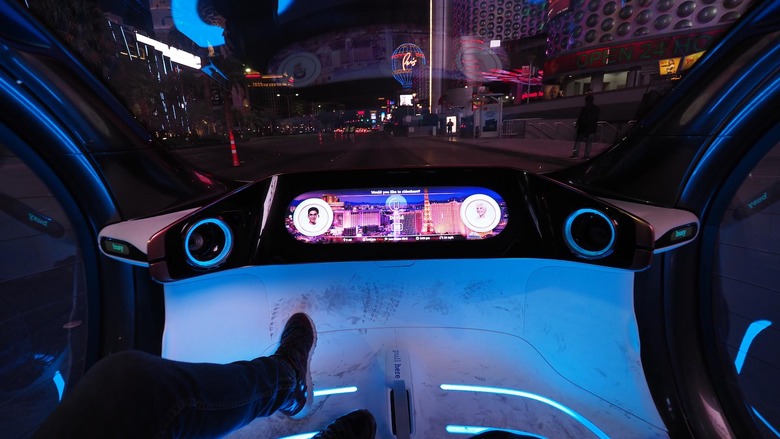
The most important is for Smart to be fully electric. This is also very important in terms of business model. We can now put all our resources in one powertrain. We can now invest in batteries, we can invest in charging times.
SlashGear: Do you think, for instance, I don't want to buy a smart car, a leasing option or subscription model would be available?Dr. Annette Winkler: To be honest, it's not in our actual development portfolio, but I could imagine all these services go into that direction. We know customers at the very end will also want to earn money with these services, and we know if you want to make people pay for that, it's not sufficient to have one service. You need many services. And then you need a subscription. So say, per month, you pay $5 per month and then you get all the services and pick the one you need. It's not in our plan but it's imaginable.
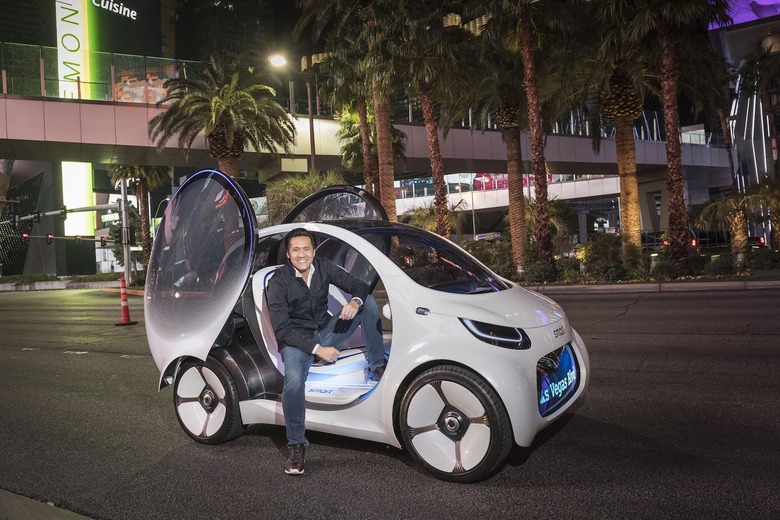
Dr. Winkler, later on, commented how the focus at CES was different from an auto show, how it was less about horsepower, electric engines, or autonomy. It was more about Smart's motivation and about the quality of life these cars can bring. Because, as Dr. Winkler herself admits, she'd still want to drive a car because it's fun. "but not in the evening when I'm tired and in rush hour."

